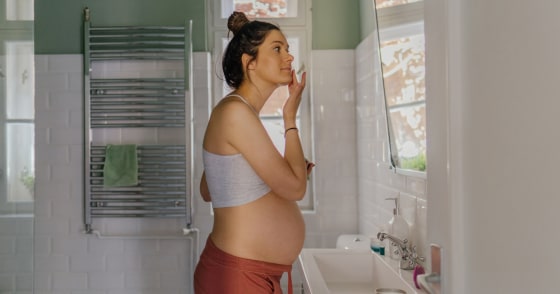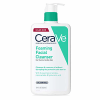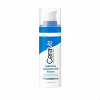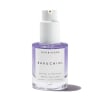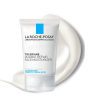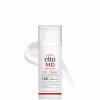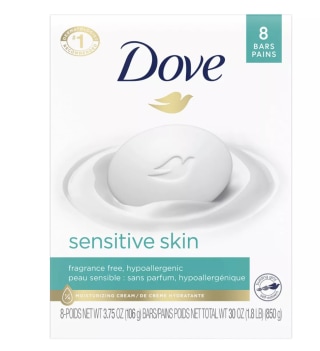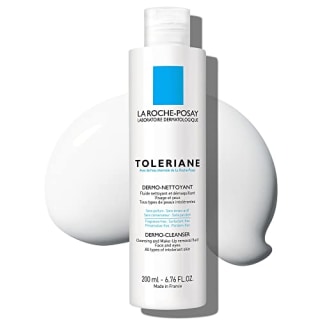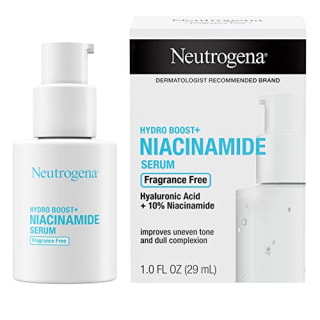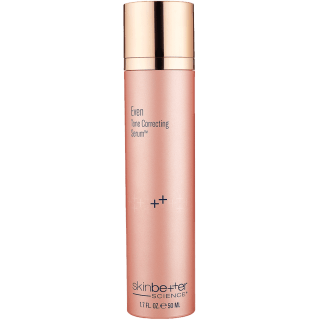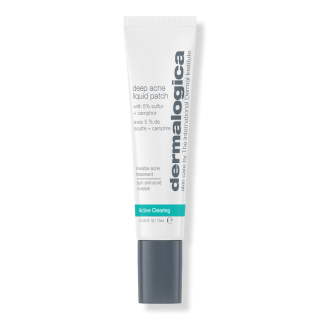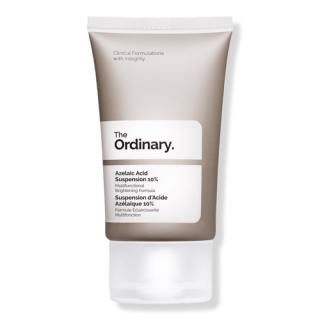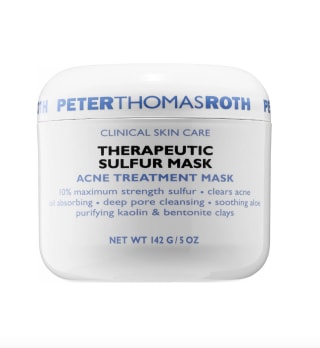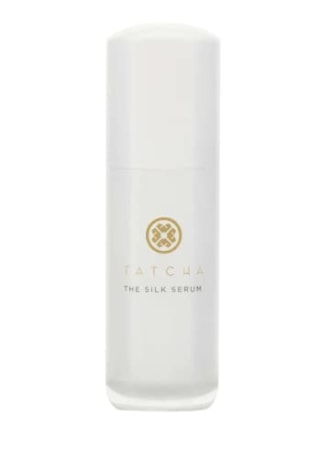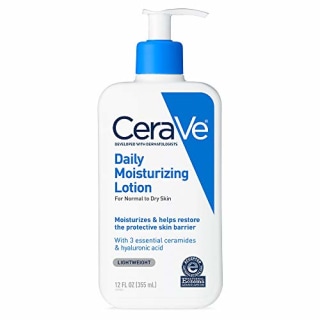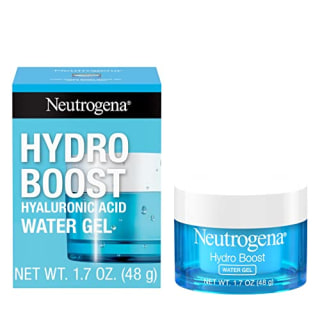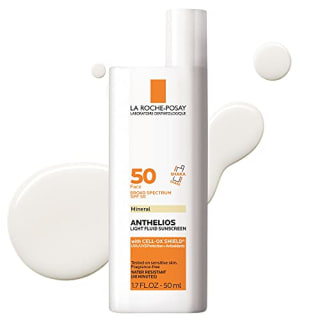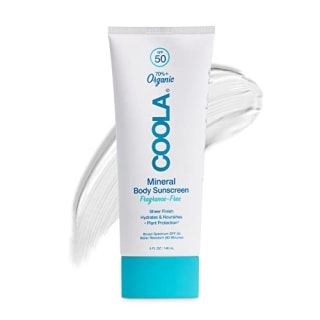Pregnancy affects all parts of life — it heavily changes your routines, your diet, and your body, but lesser known is how much it can affect your skin care. Not only can your skin concerns change when pregnant — oily skin can suddenly become dry and low-maintenance skin becomes newly sensitive — but the type of ingredients you can safely apply on your face and body also change. In certain concentrations, our experts say oral retinol and salicylic acid both carry risks of possible birth defects, so you’ll want to discuss the topical use of these ingredients with your doctor.
To help you navigate shifting skin concerns during pregnancy and identify the best pregnancy-safe products to treat them, including moisturizers and acne treatments, I spoke to board-certified dermatologists like Dr. Sejal Shah of Smarter Skin Dermatology in New York, Dr. Rachel Nazarian of the Schweiger Dermatology group in New York, and Dr. Erum Ilyas of the Schweiger Dermatology group in Pennsylvania about ingredients to avoid and what to know when shopping.
SKIP AHEAD How I picked the best pregnancy-safe skin care | The best pregnancy-safe skin care in 2025 | Cleansers | Serums | Acne treatments | Retinol alternatives | Moisturizers | Sunscreens | Why trust NBC Select?
How I picked the best pregnancy-safe skin care products
I asked board-certified dermatologists about common pregnancy skin concerns like dryness and sensitivity and for their recommendations on pregnancy-safe formulas. During pregnancy, they recommend checking product labels for unsafe ingredients, which I explain in detail below, and switching to gentle formulas. Here’s what to keep in mind, according to experts:
- Risky ingredients: Many experts in the medical community consider certain common skin care ingredients — namely retinoids (vitamin A), salicylic acid (or BHAs), hydroquinone and oxybenzone — to be unsafe to use during pregnancy because of the potential to cause fetal damage, says Dr. Sejal Shah, board-certified dermatologist and founder of Smarter Skin Dermatology in New York. Most of the evidence behind these warnings comes from heavy doses, oral use (particularly oral retinoids and salicylic acid) or animal studies, and the risk of using these ingredients occasionally in the small amounts you would use on your face is likely theoretical, according to experts. Still, there are plenty of pregnancy-safe alternatives that carry no known risks. “If you have an option that we know to be safe [during pregnancy], why use one that we don’t have enough information about?” says Dr. Rachel Nazarian, a board-certified dermatologist with the Schweiger Dermatology group in New York.
- Moisturizing capabilities: Physical and hormonal changes can lead to sensitive, dry skin during pregnancy. Formulas designed to boost hydration and protect your skin barrier with ingredients such as niacinamide, hyaluronic acid and glycerin can be helpful. When it comes to application, moisturizing is particularly important at night, according to experts. “Having adequate hydration is how our skin repairs itself overnight,” says Dr. Erum Ilyas, a board-certified dermatologist with the Schweiger Dermatology group in Pennsylvania. Having a healthy skin barrier protects you from bacteria and allergens, which is particularly important during pregnancy.
- Chemical vs. physical sunscreen: During pregnancy, experts recommend looking for a mineral sunscreen instead of a chemical formula if you are not already using one. That’s because oxybenzone, the active ingredient in many chemical sunscreens, is linked to certain birth defects. Opt for sunscreens with physical UV blockers like zinc oxide and titanium dioxide instead.
- Fragrance free: Experts also recommend looking for fragrance-free products if your skin is more sensitive than usual during pregnancy. While scents are not considered harmful, synthetic fragrances can be irritating to skin.
The best pregnancy-safe skin care products in 2025
When you’re pregnant, it may feel like you have to abandon your skin care routine and start new, but experts say that is not always the case. Reading labels, discussing the risks with your doctor and adjusting your routine accordingly can go a long way. Below, I compiled the best dermatologist-vetted cleansers, serums, moisturizers and more to address all your pregnancy-related skin concerns safely.
Best pregnancy-safe cleansers
Best overall: CeraVe Foaming Facial Cleanser
- Hydrating formula
- Affordable
- Non-irritating
- Nothing to note at this time
Like other options on this list, this CeraVe’s Foaming Facial Cleanser has hyaluronic acid, niacinamide and ceramides in it to hydrate your skin. “It’s not as irritating to the skin as some cleansers can be and it doesn’t have any active [ingredients] that are aggravating or irritating your skin further,” says Ilyas. There’s also no added fragrance, according to the brand.
Best bar cleanser: Dove Sensitive Skin Beauty Bar
- Fragrance-free
- Hypoallergenic formula
- Non-irritating
- Nothing to note at this time
When it comes to cleansers, experts say the simpler the better. One of Nazarian’s all-time favorites is Dove’s Sensitive Skin Beauty Bar since it cleanses without being irritating. “It’s just a good solid basic,” she says. There’s also no added synthetic fragrances, according to the brand.
Best cleanser for dry skin: La Roche-Posay Toleriane Dermo Milky Cleanser
- Good for sensitive skin
- Hydrating ingredients
- Pricier than others
Particularly during pregnancy, “you want to keep that skin barrier super healthy and super moisturized,” says Nazarian. “The last thing you want to do is dry it out and make it irritated.” If you find your skin falling into the irritated, dry or sensitive categories, Shah recommends La Roche-Posay’s Toleriane Dermo Milky Cleanser. It has glycerin, which is a humectant that helps draw water into the skin to keep you hydrated, according to La Roche-Posay.
Best pregnancy-safe serums
Best overall serum: CeraVe Hyaluronic Acid Serum
- Great for dry skin
- Hydrating ingredients
- No harmful actives
- Nothing to note at this time
For pregnant patients, Ilyas recommends hyaluronic-acid based serums, which can add an additional layer of hydration to skin before you apply moisturizer. With it, you’re giving yourself a little boost of hydration to help minimize fine lines and wrinkles, without an active ingredient that can harm the baby in any way, says Ilyas.
Best hydrating serum: Neutrogena Hydro Boost + Niacinamide Serum
- Anti-inflammatory
- Good for sensitive skin
- Brightening properties
- Nothing to note at this time
“Niacinamide is a real powerhouse ingredient, just like vitamin C,” says Shah. It can address fine lines and also has anti-inflammatory benefits. It can also help brighten the skin, which can be particularly useful during pregnancy when hormones stimulate the production of pigment in the skin, says Shah. You can use this 10% niacinamide serum twice a day before applying moisturizer, according to the brand.
Best for dark spots: Biossance Squalane + 10% Vitamin C Dark Spot Serum
- Targets hyperpigmentation
- Calming ingredients
- Hydrating
- A bit of a splurge
This serum will target the hyperpigmentation many people battle during pregnancy, says Shah. Squalane helps lock in moisture, rose petal extract calms the skin and vitamin C helps tackle pregnancy-related pigmentation issues like melasma. “It’s going to help hydrate, protect, and brighten the skin, which is all stuff the skin needs during pregnancy,” she says.
Best for dark skin: Eadem Milk Marvel Dark Spot Serum
- Great for dark skin
- Hydrating ingredients
- Gentle formula
- Nothing to note at this time
This serum has a hydrating, milky texture and is designed to fade dark spots and stop new ones from forming, according to the brand. It uses amber algae, ethyl ascorbic acid (a form of Vitamin C) and niacinamide to help reduce hyperpigmentation while also soothing the skin with glycerin. The serum is also specifically formulated to work well for those with darker skin tones who may struggle with hyperpigmentation.
Best splurge serum: Skinbetter Science Even Tone Correction Serum
- Lightweight texture
- Brightening ingredients
- Targets fine lines
- Priciest option
Another pregnancy-safe serum experts recommend for addressing pigmentation issues is Skinbetter Science’s Even Tone Correction Serum. The formula is free of hydroquinone, an ingredient experts recommend avoiding during pregnancy and instead brightens the skin with pregnancy-safe kakadu plum extract (a form of vitamin C) as its active ingredient.
Best pregnancy-safe acne treatments
Best overall: Dermatologica Deep Acne Liquid Patch
- Sulfur-based
- Only need a little
- Anti-inflammatory
- Sulfur causes a smell
Addressing pregnancy-related acne can be challenging if you’re avoiding salicylic acid — a staple in many acne-fighting formulas. This spot treatment, which has niacinamide in it to help reduce inflammation, is a pregnancy-safe alternative. “It’s a sulfur-based treatment, which is a safe ingredient for acne in pregnancy,” says Shah. A little goes a long way: dispense a drop of product the size of a grain of rice onto the back of your hand and then use your finger to dab onto your blemish before massaging it in, according to the brand.
Best for dry skin: The Ordinary Azelaic Acid Suspension 10% Exfoliator
- Exfoliating
- Non-irritating
- Good for sensitive skin
- Creamy texture
Azelaic acid is another dermatologist-recommended alternative to salicylic acid during pregnancy. It not only effectively addresses acne, but most azelaic acid formulas are nonirritating to sensitive pregnancy skin, says Ilyas. Azelaic acid is also an expert-favorite brightening ingredient to help address pregnancy-related pigmentation conditions like melasma.
Best for oily skin: Peter Thomas Roth Therapeutic Sulfur Acne Treatment Masque
- Great for oily skin
- Helps stop breakouts
- Not for dry skin
This medicated mask is designed to help clear acne while exfoliating the skin, according to the brand. It’s formulated with sulfur, which is an anti-inflammatory ingredient that soothes breakouts, redness, and skin irritation. The mask, which has a 4.5-star average rating from more 1,250 reviews on Sephora, also uses kaolin and bentonite clay to absorb excess oil clogging your pores, in order to prevent future breakouts, according to the brand.
Best pregnancy-safe retinol alternatives
Best overall retinol alternative: Herbivore Bakuchiol Retinol Alternative Serum
- Non-irritating
- Plant-based
- Non-drying formula
- Scent may be strong
Formulated to reduce the appearance of fine lines, this serum, which has a 4.2-star average rating from 672 reviews on Amazon, uses bakuchiol to achieve the effects of retinol without the potentially harmful effects to your pregnancy. Derived from plants, bakuchiol firms skin and smooths texture, and works in tandem with the polyhydroxy acids (PHAs) and blueberry stem cells in this serum to fight dullness and improve your skin’s overall radiance and texture, according to the brand.
Best splurge: Tatcha The Silk Serum
- Silky texture
- Fast-acting
- Gentle formula
- Luxury price tag
Most of the experts I spoke to say it’s best to err on the side of caution and eliminate retinol from your skin care routine during pregnancy. As a replacement, Shah recommends Tatcha’s silk serum. “It uses a combination of cranberry extract and sea fennel to help support collagen [production],” she says. Like a traditional retinol, it also helps to plump skin, reducing the appearance of fine lines and wrinkles, according to the brand.
Best pregnancy-safe moisturizers
Best overall: La Roche-Posay Toleriane Double Repair Face Moisturizer
- Lightweight
- Non-greasy formula
- Softens skin
- Nothing to note at this time
For a thicker, extra-hydrating face moisturizer, experts recommend La Roche-Posay’s Toleriane Double Repair Face Moisturizer. It has three types of hydrators — niacinamide, glycerin, and ceramides — in it to help draw moisture into the skin and strengthen the skin barrier. NBC Select associate SEO reporter Ashley Morris says the moisturizer also has a lightweight texture that isn’t too greasy on oily skin.
Best for face and body: CeraVe Daily Moisturizing Lotion
- Absorbs quickly
- Lasts all day
- Good for face and body
- May be too heavy for oily skin
For a pregnancy-safe moisturizer you can use from head-to-toe, Ilyas likes CeraVe’s Daily Moisturizing lotion, which you can use on the face and body, because it doesn’t feel “slimy and uncomfortable,” she says. Formulated with three types of ceramides, it is particularly helpful in strengthening the skin barrier as it stretches during pregnancy, according to the brand.
Best for oily skin: Neutrogena Hydro Boost Hyaluronic Acid Water Gel
- Great for sensitive skin
- Won’t clog pores
- Gel texture
For pregnant patients on the oilier side, experts recommend Neutrogena’s Hydro Boost Hyaluronic Acid Water Gel. Water-based gels like this hydrate your skin without adding oil that can potentially clog pores. It also has a key hydrator in hyaluronic acid: “Hyaluronic acid is something found naturally in our skin, it’s safe during pregnancy, and it’s well-tolerated by everyone, including those in the hyper-sensitive state of pregnancy,” says Nazarian.
Best pregnancy-safe sunscreens
Best lightweight: La Roche-Posay Anthelios Ultra-Light Mineral Sunscreen
- Good for sensitive skin
- Lightweight
- High SPF
- May leave white cast
Shah recommends switching to a mineral sunscreen during pregnancy. In addition to concerns about the effects of oxybenzone on fetal development, mineral formulas can be less irritating for sensitive pregnancy skin, she says. Experts I spoke to like La Roche-Posay’s Anthelios sunscreen for its sheer texture and blendability. This zinc oxide-based formula has an SPF of 50, and it’s also oil-free.
Best overall: EltaMD UV Clear Broad-Spectrum SPF 46
- No white cast
- Sensitive skin-friendly
- Anti-inflammatory
- Nothing to note at this time
This is our top pick for best sunscreen, and an NBC Select staff favorite for sensitive skin. NBC Select updates editor Mili Godio, who deals with dry skin and rosacea, says this is the only sunscreen that doesn’t irritate her skin. It’s formulated with niacinamide to help soothe inflammation, according to the brand. It’s also non-comedogenic, and oil- and fragrance-free, according to EltaMD.
Best body sunscreen: Coola Mineral Body Sunscreen Lotion SPF 50
- Water-resistant
- Broad-spectrum
- Non-greasy formula
- Slightly sticky
For a full-body option, experts like Coola’s mineral sunscreen. The fragrance-free formula has broad-spectrum protection, which means it keeps your skin safe from both UVA and UVB rays. Plus, it has a sheer finish and is water-resistant for up to 80 minutes, according to the brand.
How to shop for pregnancy-safe skin care
When shopping for pregnancy-safe skin care, experts say the best approach involves assessing your skin’s changing needs and talking with your doctor about what ingredients you feel comfortable using. Below, I highlight where to begin when evaluating the best products for pregnancy.
- Assess your skin care needs. “When you are pregnant, your skin is different,” says Shah. A combination of vascular, hormonal, and physical changes mean that skin texture can change, and many pregnant people experience dryness and itchiness as a result. Making sure your skin care routine includes products with ultra-hydrating ingredients like hyaluronic acid is important as are products with ceramides to help strengthen the skin barrier, according to experts. If you’re experiencing irritation, try eliminating products with synthetic fragrances and replacing them with fragrance-free options, experts say.
- Read ingredient labels. While there’s no need to overhaul your entire skin care routine during pregnancy, you should be aware of ingredients that may pose a risk during pregnancy, says Shah. Experts recommend stopping the use of retinoids, avoiding brightening creams with hydroquinone and acne treatments with salicylic acid.
- Talk to your doctor. No matter how conservatively you approach your topical skin care routine or if you exclusively use over-the-counter ingredients, talk to your doctor about any oral medications you’re taking. Medications including isotretinoin (Accutane) and spironolactone, which are prescribed by a dermatologist for concerns including acne and hair loss, are dangerous during pregnancy and can seriously impact fetal development.
Meet our experts
At NBC Select, we work with experts who have specialized knowledge and authority based on relevant training and/or experience. We also take steps to ensure all expert advice and recommendations are made independently and without undisclosed financial conflicts of interest.
- Dr. Sejal Shah is a board-certified dermatologist and founder of Smarter Skin Dermatology in New York. She specializes in cosmetic dermatology and treating skin of color.
- Dr. Rachel Nazarian is a board-certified dermatologist with the Schweiger Dermatology group in New York. Her areas of research include the treatment of skin disease and she also specializes in cosmetic treatments including lasers and injectables.
- Dr. Erum Ilyas is a board-certified dermatologist with the Schweiger Dermatology group in Pennsylvania. Her expertise includes pediatric and medical dermatology and skin cancer treatment.
Why trust NBC Select?
I am a journalist and former Glamour editor who has been covering beauty and wellness treatments for over a decade.
For this article, I spoke to three dermatologists about the best perinatal skincare products, including ingredients to avoid during pregnancy.
Catch up on NBC Select’s in-depth coverage of tech and tools, wellness and more, and follow us on Facebook, Instagram, Twitter and TikTok to stay up to date.
- Our top picks
- How I picked the best pregnancy-safe skin care products
- The best pregnancy-safe skin care products in 2025
- Best pregnancy-safe cleansers
- Best pregnancy-safe serums
- Best pregnancy-safe acne treatments
- Best pregnancy-safe retinol alternatives
- Best pregnancy-safe moisturizers
- Best pregnancy-safe sunscreens
- How to shop for pregnancy-safe skin care
- Frequently asked questions
- Meet our experts
- Why trust NBC Select?
